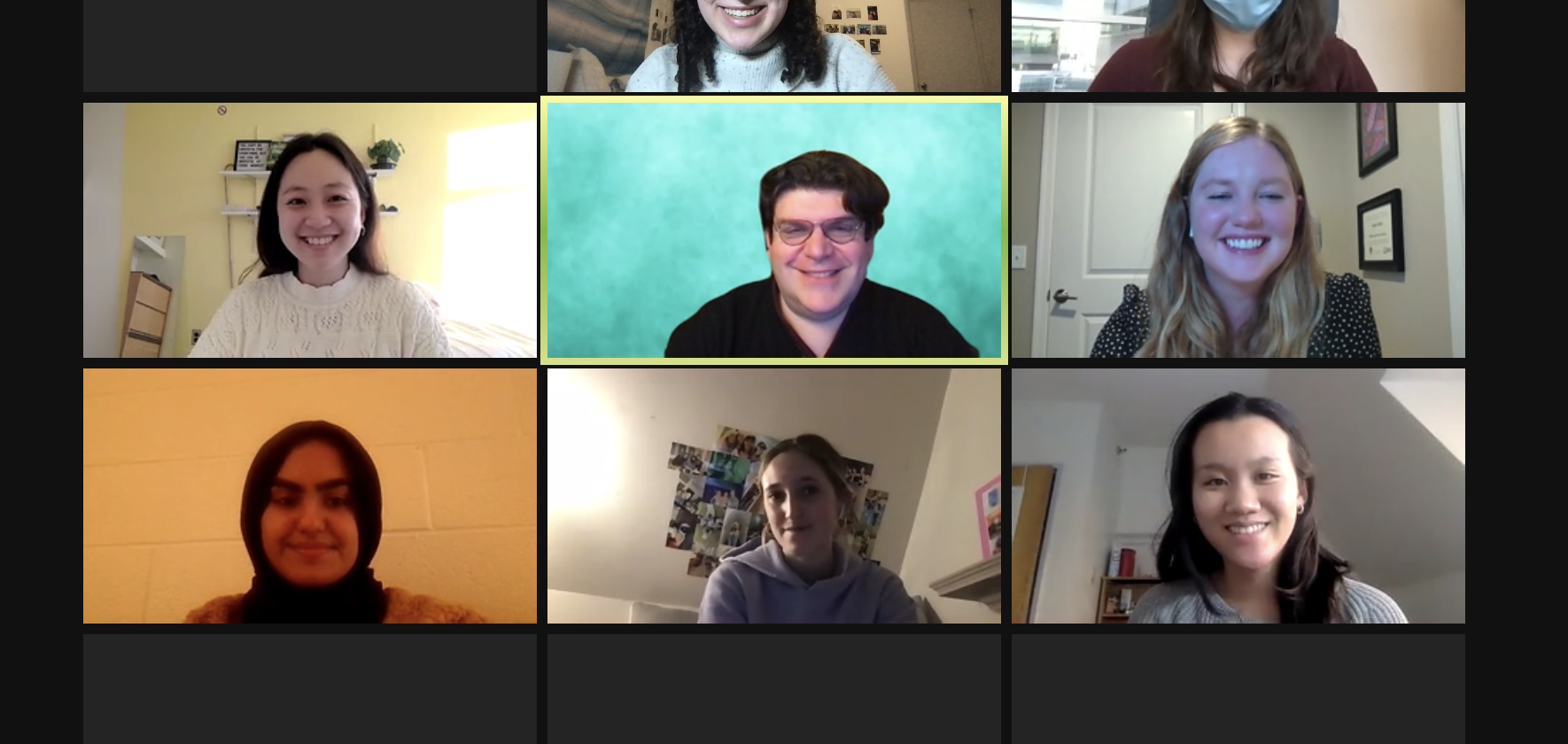In their talk, both Dr. Davis and Dr. Demiris spoke on the challenges that they both face doing their work due to its public interest nature. Dr. Davis mentioned how many people discouraged her from doing science policy or outreach work due to it potentially harming her long-term career goals. Similarly, Dr. Demiris described the difficulty of publishing very unique, community-centric research due to the difficulty of obtaining funding and getting published.
Despite these challenges, both panelists encouraged the attendees to pursue their interests in public interest related work. On the research end of things, Dr. Demiris spoke on keeping perspective on the importance of the work he does. Often, the funding and awards that research gets doesn’t always align with its community impact, so it’s always important to focus on the research’s overall impact and benefit to society.
In terms of major issues impacting their work in public interest, Dr. Davis emphasized including diverse voices in research, as it’s important to think about how research and their results might impact groups disparately. This also extends to age, as Dr. Davis is frequently much younger than all other people in her meetings; she wants to encourage young scientists to enter the science policy space and shape the discussion. Communicating with the public is a significant issue that Dr. Demiris described, as people need to be aware of the risks and benefits of different technologies, as well as have their privacy preserved.
Panelists:
- Kayla Davis is an AAAS Science & Technology Policy Fellow working at the Department of Energy in the Office of Diversity, Inclusion and Research Integrity in the Office of Science. She is a cell biologist who is passionate about STEM education, developing and supporting a diverse STEM workforce, and equitable access to STEM education and healthcare. She is a citizen of Osage Nation and a recent graduate of Harvard University where she received her Ph.D. in Biological and Biomedical Sciences. Kayla recently completed a postdoctoral fellowship in neurology at Harvard Medical School where she also served as a Teaching Fellow and Instructor for Harvard Medical School’s Social Issues in Biology course. Kayla is the founder of a STEM education non-profit, CodeSciLab, which has a mission of improving access to science education by providing free and low barrier-to-entry computational science programming.
- George Demiris is a PIK University Professor at the University of Pennsylvania and holds joint faculty appointments in the Department of Biobehavioral Health Sciences of the School of Nursing and the Informatics Division of the Department of Biostatistics, Epidemiology and Informatics, Perelman School of Medicine. He explores innovative ways to utilize technology and support older adults and their families in various settings, including home and hospice care. He also focuses on designing and evaluating personal health systems that produce patient-generated data including “smart home” solutions for aging. He is a Member of the National Academy of Medicine, a Fellow of the American College of Medical Informatics, the Gerontological Society of America and the International Academy of Health Sciences Informatics. He is the Editor-In-Chief of Informatics for Health and Social Care and a Senior Fellow of the Leonard Davis Institute for Health Economics.




